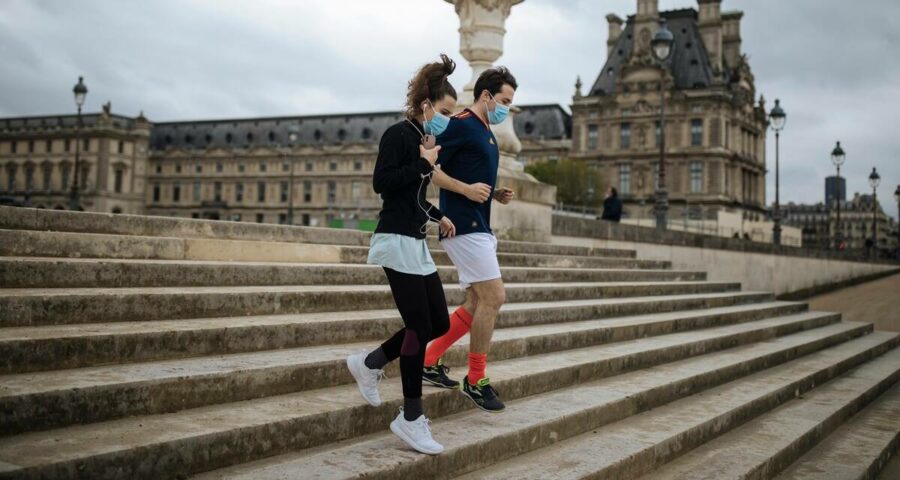President Emmanuel Macron, who was forced by a spiralling infection rate and overloaded healthcare system to impose a third nationwide lockdown, is counting on an accelerated vaccine rollout to allow a gradual reopening of the country from the middle of next month.
France will lengthen the period between the first and second shots of mRNA anti-Covid vaccines to six weeks from four weeks as of April 14 to accelerate the inoculation campaign, Health Minister Olivier Veran told the JDD newspaper on Sunday.
Although France’s top health authority advised a six-week period between the two shots in January in order to stretch supplies, the government at the time said there was insufficient data on how well the vaccines performed with a longer interval.
France could safely do so now because it was vaccinating a younger age group, Veran said.”(It) will allow us to vaccinate more quickly without reducing protection,” the minister told the paper.
France has approved use of the Pfizer/BioNTech and Moderna mRNA vaccines. Veran also said that from Monday the AstraZeneca vaccine would be made available to all over-55s and not just those with serious pre-existing conditions.
After a glacial start, France’s vaccine rollout is hitting its stride, reaching a target of 10 million first doses a week ahead of a mid-April target. The government aims to deliver another ten million first shots by mid-May.
Johnson & Johnson would deliver its first 200,000 doses destined for France on Monday, a week early, Veran said.
President Emmanuel Macron, who was forced by a spiralling infection rate and overloaded healthcare system to impose a third nationwide lockdown, is counting on an accelerated vaccine rollout to allow a gradual reopening of the country from the middle of next month.
The numbers in intensive care continue to rise and France will almost certainly cross the 100,000 deaths threshold this week. It reported over 43,000 new Covid-19 cases on Saturday and said there were now 5,769 patients receiving critical care.
However, Veran said there were signs that a new lockdown was beginning to slow the infection rate. “It remains very high,” Veran told the JDD. “We can expect that after a period of stabilisation comes the fall. But for that, we must keep going.”
Source: Read Full Article


